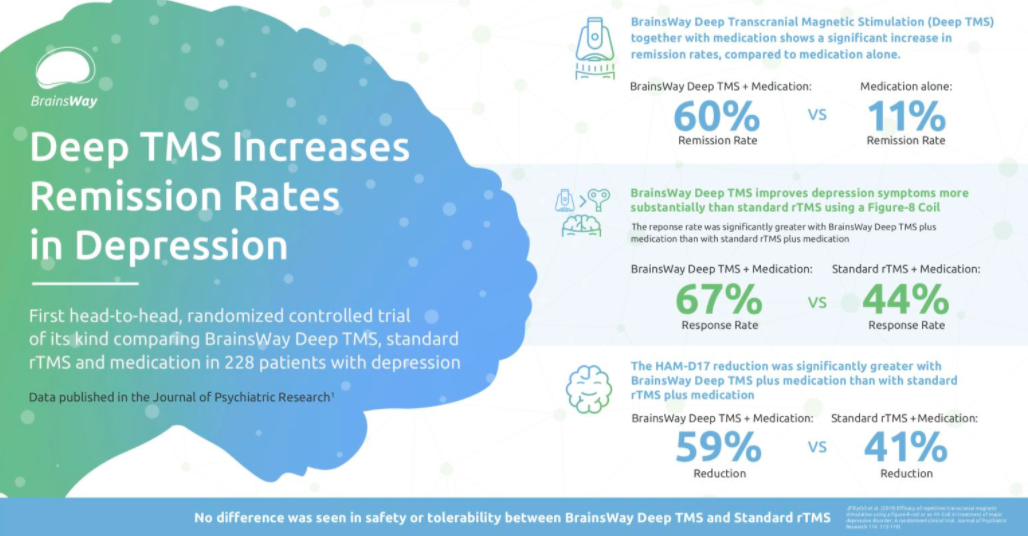DEPRESSION
Depression Treatment in Milwaukee, Wi
On this page:
Treating Depression
Have you been feeling like something’s just not right? Have you stopped doing the things that you normally love to do? These are just two signs that you may be suffering from depression or Major Depressive Disorder (MDD).

While depression is common, it is a serious medical condition that can greatly impact your quality of life. Depression can negatively impact how you think, feel, and act, which can result in feelings of sadness and loss of enjoyment in activities you normally enjoy.
With so many new and effective treatments for depression, no one should have to live with it. Yet an estimated 80% of the 15 million Americans with depression do not get the help they need. Depression is now the leading cause of disability for Americans between the ages of 15 and 45. Signs and symptoms of depression can range from moderate to severe, and may include:
- Feeling sad
- Chronic fatigue, tiredness
- Inability to make decisions
- Inability to plan or complete tasks
- Inability to feel pleasure
- Being easily annoyed, quick to anger
- Sleeping too much or too little
- Poor eating habits
- Constant or chronic pain (also causes depression)
- Reduced motivation for self-care (letting yourself go)
- Dark, morose, or suicidal thoughts
- Social isolation
If you are near Milwaukee and experiencing any of the above, please talk to us. Not only can we diagnose depression, but we have so many ways to help you beat depression and feel better.
How is Depression Different From Sadness or Grief?
When someone experiences loss or major life changes, they may experience feelings of sadness or grief. These emotions are normal, and are related to the circumstances they’re experiencing. While people often express feeling “depressed” during these times, and both grief and depression can have similar symptoms, this is not the same thing as having depression. Grief is typically accompanied by loss, while depression can affect someone without apparent cause or warning.
In order to be diagnosed with depression, a patient must have symptoms that last for at least two weeks. There are several different types of depression, some of which are tied to specific circumstances. There are a variety of factors that can contribute to depression as well, including biological, genetic, psychological, and environmental risk factors.
While grief and depression can coexist, it is important to distinguish between the two in order to get the correct help and treatment.
How is Depression Treated?
Fortunately, depression is very treatable, and we have a variety of treatment options available to assist those suffering from depression. From therapy and TMS for depression to medications such as Wellbutrin and Zoloft, there are many options available. No two individuals are the same, and there is no “one size fits all” treatment for depression. One thing that is consistent, however, is the sooner a patient begins treatment, the more effective it is. Treatment is based on each individual’s unique needs, in order to give them the best possible outcome. Potential treatment options include a variety of therapy options, medications, and other treatments based on a patient’s specific needs. We are excited to be able to offer TMS Therapy for our patients with depression. It is a highly effective, drug-free option for depression that has been found to not only help with symptoms of depression, but also to reduce future depressive episodes.
Common Types of Depression
Depression manifests in various common forms, affecting individuals at different stages of life. Major depressive disorder is one of the most prevalent, characterized by persistent sadness, loss of interest, and physical symptoms like changes in appetite and sleep. Seasonal affective disorder (SAD) emerges in response to seasonal changes, often during winter, leading to mood disturbances. Another important subtype is perinatal and postpartum depression, which impacts women during pregnancy (perinatal) and after childbirth (postpartum). These conditions are marked by intense emotional fluctuations, anxiety, and feelings of inadequacy, affecting not only the mothers but also their newborns’ well-being. Recognizing and addressing these various forms of depression is crucial to providing appropriate support and treatment for affected individuals.

Don’t live with the misery of depression, anxiety, bipolar disorder, PTSD, psychotic spectrum disorders, or another mental health issue. Call New Frontiers Psychiatric & TMS at 414-763-6910 or Request an Appointment online.
We welcome patients from the Milwaukee area, including New Berlin, Waukesha, Wauwatosa, West Allis, and nearby communities.
What Our Patients Have to Say
⭐️ ⭐️ ⭐️ ⭐️ ⭐️
“Dr. Yin has been amazing at helping me find the right medication balance. She is thoughtful, genuinely listens to my concerns, and takes action to find solutions to my mental health issues. I am incredibly grateful for her support and assistance.” -Jason B.

